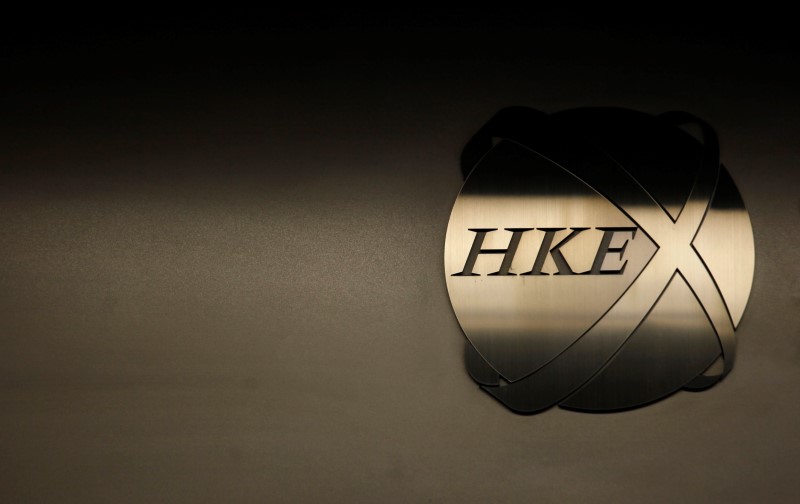By Michelle Price and Eric Onstad
HONG KONG/LONDON (Reuters) - Britain's vote to leave the EU has prompted the Hong Kong stock exchange (HKEX) to put on hold a commodities clearing link with its London Metal Exchange (LME), dealing a blow to its bid to make the LME more profitable.
Hong Kong Exchanges & Clearing (HK:0388) Chief Executive Charlies Li said the planned link-up would now have to wait due to the uncertainty created by the British vote last month.
Other LME initiatives, however, should not be affected by the Brexit vote, Li wrote in his blog published on Wednesday.
The freeze is another obstacle to the Hong Kong exchange's efforts to generate a payback from its $2.2 billion (£1.6 billion) takeover of LME in 2012 by expanding into China, the world's biggest metals consumer, an analyst said.
"The Hong Kong exchange's strategy regarding the LME seems to have gone into a holding pattern in general," said Wiktor Bielski, head of commodities research at VTB Capital in London.
"A lot of the things that they had proposed to do after buying the LME all proved to be a lot more difficult than they expected."
HKEX has succeeded, however, in some of its plans to boost profits at the LME, raising fees and boosting electronic trading, while arbitrage activity between the LME and the Shanghai Futures Exchange has soared this year.
Li said the planned link, designed to clear and settle LME trades in Hong Kong, would have been subject to regulatory authorities in Hong Kong, Britain and the European Union.
"With Britain withdrawing from the EU, there is some uncertainty about the policy developments in the UK. Therefore, we will wait and monitor the development of the UK and Europe's regulatory policy before making further plans to connect the commodities markets in London and Hong Kong," Li wrote.
BREXIT HOLDING PATTERN
Last October, HKEX said it had started a preliminary study to build the link, which would allow big commodity importers in Hong Kong to hedge their trading exposure through the LME.
The HKEX and LME had also hoped that such a tie-up would allow them to offer yuan-denominated futures and other commodities products to European investors, which would further expand the use of the Chinese currency globally.
"Brexit is bad news for them. Anybody that is a UK-based and internationally-focused organisation that has been regulated by the EU but isn't going to be in the future, goes into a 2-1/2 year holding pattern," Bielski said.
The LME, the world's oldest and largest market for industrial metals, has been operating for almost 140 years, long before the EU was created, Li said.
The exchange was pressing ahead with other plans, such as establishing LME-certified warehouses on the Chinese mainland and launching a spot commodities trading platform in Shenzhen.
Bielski said, however, that HKEX would continue to face difficulties in getting regulatory approvals from mainland Chinese authorities.

"The Chinese without a doubt want to develop Shanghai into the major trading area in Asia and getting approval for any sort of Hong Kong-China or LME-China plans are going to be almost impossible," he said.